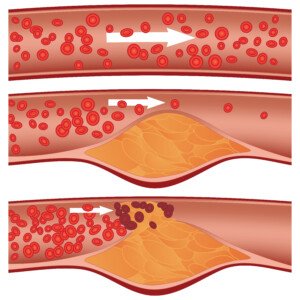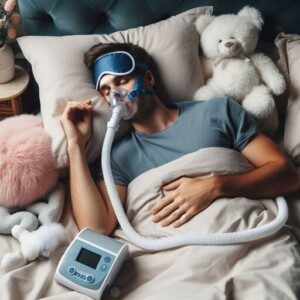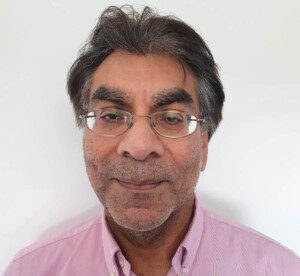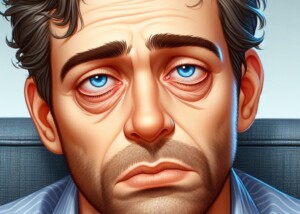Untreated sleep apnea can lead to heart disease. If one starts CPAP therapy, might this reverse the heart disease? OSA endangers the heart.
While CPAP arrests this process, one may be wondering if it can also send it in the opposite direction, that is, undo any damage that’s already been done.
There are two main kinds of heart disease (an umbrella term) that untreated obstructive sleep apnea can cause.
They are coronary artery disease, also known as atherosclerosis, and the second one is chronic heart failure, which is inefficient pumping of the heart muscle.
Atherosclerosis, however, can lead to an acute blockage in a coronary artery: a heart attack, depriving heart muscle from oxygen.

Coronary blockage leading to a heart attack. Shutterstock/Diamond_Images
“Heart disease is not ‘reversible’ as such,” begins Dr. Praveen Bhatia, MBBS, a consultant physician in respiratory and general medicine in Stockport, UK.
Dr. Bhatia explains, “Atherosclerosis, heart tissue changes and other vascular problems are generally permanent, though treatment for sleep apnea slows the process of CAD [coronary artery disease] and prevents it from getting any worse.
“If someone with OSA has atherosclerosis and heart remodeling but does not currently have any symptoms, treatment with CPAP reduces the risk of them ever getting symptomatic heart disease.”
The heart remodeling can be caused by the intrathoracic pressure that builds up on a chronic basis from untreated disordered breathing during sleep.
In turn, this remodeling (altered shape) of the heart makes it pump blood less efficiently: chronic heart failure, a failure to adequately pump.
“Those with symptomatic heart disease and OSA will still require treatment for CAD, but treatment with CPAP may mean they can avoid more serious treatments such as stents and coronary artery bypass grafts.”
Another way of looking at this is to realize that adhering to CPAP therapy is not a green light for being careless with eating habits and lax with exercise.
CPAP is no replacement for a heart healthy diet, heart healthy exercise and other heart healthy lifestyle practices.











































